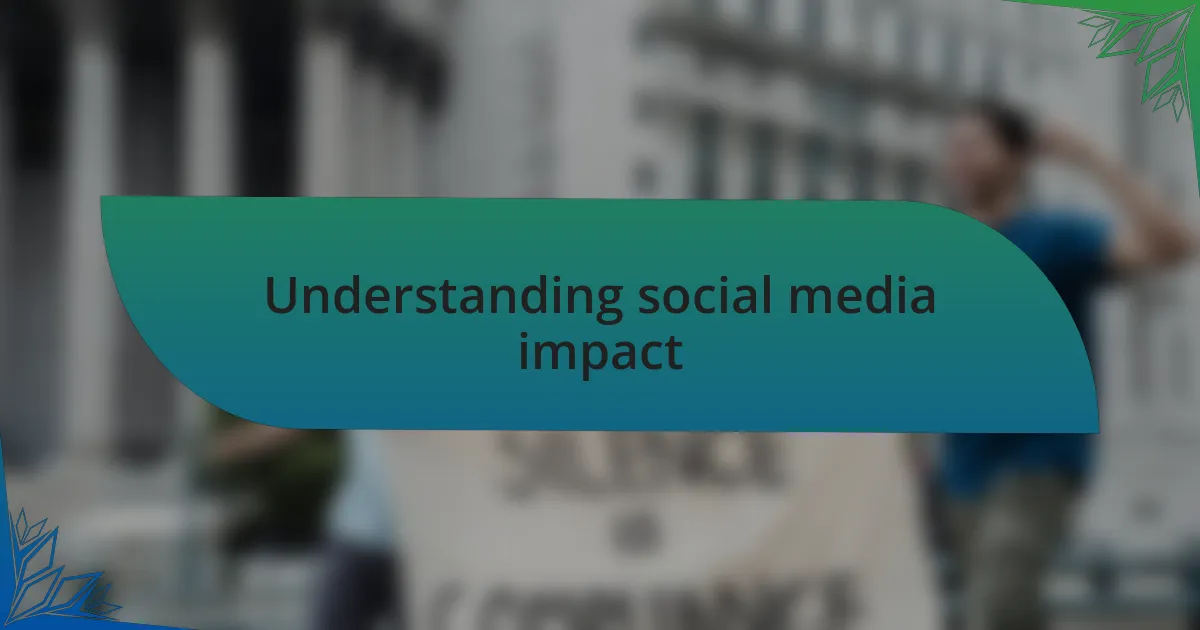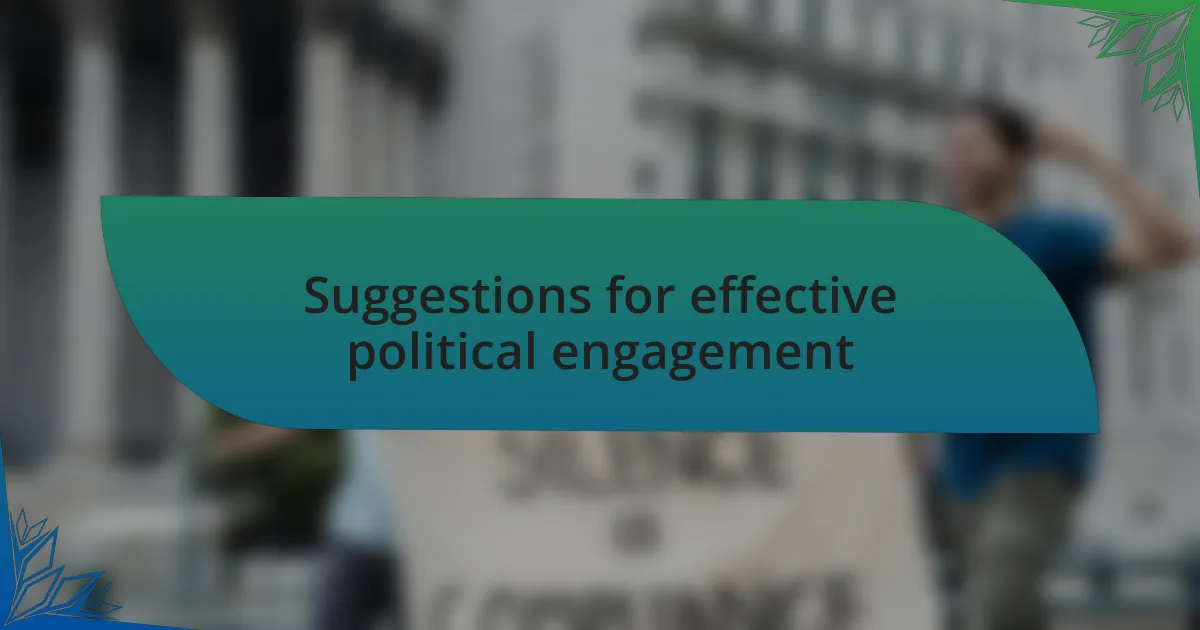Key takeaways:
- Social media amplifies voices in political discourse but can also distort perceptions through misinformation.
- Effective engagement involves reflecting on post intent before responding to foster healthier conversations.
- Diversifying sources of information challenges beliefs and leads to more robust discussions.
- Approaching interactions with empathy and sharing personal stories can transform debates into meaningful dialogues.

Understanding social media impact
Social media has transformed how we engage with political discourse. I remember the first time I saw a trending topic unfold on Twitter during an election cycle; it felt like being in the middle of a bustling town square where voices clashed, opinions were shared, and information spread at lightning speed. Isn’t it fascinating how platforms like these can amplify voices that might otherwise remain unheard?
Moreover, the emotional impact of social media cannot be understated. I often find myself resonating with posts that articulate my frustrations or hopes, making me feel part of a larger community, yet I can’t help but wonder: does this sense of belonging come at a cost? It’s crucial to critically evaluate whether the environment fosters healthy dialogue or merely intensifies divisions among us.
As I reflect on the various discussions I’ve encountered online, I realize that while social media brings awareness to vital issues, it also has the potential to distort perceptions. For instance, I’ve witnessed misinformation spread rapidly, changing the dynamics of how we discuss political events. This makes me think—how do we discern truth in such a chaotic landscape, and what responsibility do we bear in curating the information we share?

Suggestions for effective political engagement
Engaging effectively in political discussions on social media requires a thoughtful approach. For instance, I often remind myself to take a step back and consider the intent behind a post before reacting. Have you ever felt that impulse to comment immediately, only to regret it later? Taking a moment to reflect helps in presenting a more constructive response, fostering healthier conversations.
Another key suggestion is to diversify the sources you engage with. I’ve made it a point to follow a range of viewpoints, even those I don’t necessarily agree with. This practice not only broadens my understanding but also challenges my own beliefs. How often do we limit ourselves to echo chambers, inadvertently stunting our growth? Seeking out differing opinions can lead to more robust discussions and a better grasp of complex issues.
Lastly, I believe it’s essential to approach online interactions with empathy. Share personal stories to connect with others emotionally; I’ve done this when discussing contentious topics, and it often leads to surprising alliances. Can you recall a time when sharing your experience transformed a debate into a dialogue? I find that these shared moments can bridge divides, highlighting our common humanity amidst political differences.